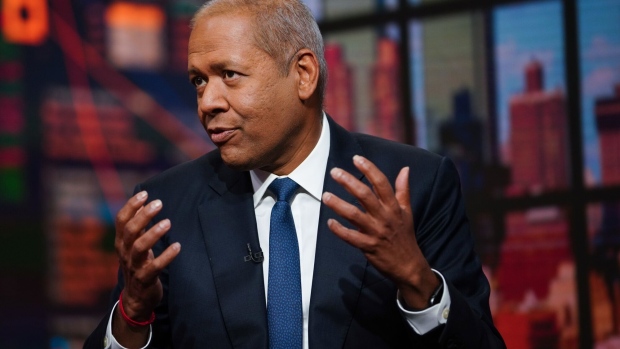Barclays to cut hundreds of jobs across trading, investment bank
, Bloomberg News

Barclays Plc is preparing to cut hundreds of jobs as soon as next week as the firm looks to trim costs amid quieter markets.
The lender is planning to dismiss about 5 per cent of client-facing staff in the trading division as well as some dealmakers globally as part of the cuts, according to people familiar with the matter. Separately, the firm is also preparing to restructure teams within its U.K. consumer-banking unit, the people said, asking not to be named discussing personnel information.
“We do not comment on speculation,” Barclays said in a statement. “We regularly review our operations to ensure we meet the evolving needs of our customers and clients in an efficient and effective way.”
Barclays Chief Executive Officer C.S. Venkatakrishnan has been under pressure to boost profits and improve the bank’s share price. As part of that, he’s vowed to reduce expenses across the firm and embarked on a wide-reaching review of strategy.
The moves are part of the bank’s annual culling of underperformers in its markets division and corporate and investment bank, the people said. Goldman Sachs Group Inc. is also planning to begin those annual cuts as soon as next month.
Barclays and its rivals have been contending with a slowdown in trading revenue compared to a year ago, when Russia’s invasion of Ukraine juiced volatility across markets.
Despite the impending cuts, the bank has hired more than five dozen managing directors and directors for the markets division since the start of the year, including Scott McDavid, who joined as global head of equities, and Igor Cashyn, who’s the bank’s head of US inflation trading. Torsten Schoeneborn, co-head of Group of 10 foreign-exchange trading, also joined from BNP Paribas SA.
Barclays is reeling from higher-than-usual attrition among dealmakers, which Venkatakrishnan has attributed to the firm naming two new global co-heads of the business. In response, the company has hired more than 30 managing directors and directors across the banking division.
“When you do that kind of organizational change, sometimes it has impacts,” Venkatakrishnan said in a Bloomberg Television interview in June. “We’re losing a few investment bankers, but not that much more than what is normal annual turnover.”
Still, the planned dismissals come in the midst of a prolonged dip in deals and capital markets. Barclays and rivals have been hit by the slowdown following aggressive interest-rate increases by central banks around the world seeking to tame inflation.
In response, the company earlier this year already cut about 100 roles in its investment-banking group. The London-based bank previously eliminated about 200 jobs in the division in November.
U.K. banking changes
Venkatakrishnan has been vocal about his desire to make Barclays more efficient, and the firm is seeking to lower its cost-to-income ratio, a measure of how much it costs to produce a dollar of revenue. As a result, the company already spent about £63 million (US$78 million) in firmwide restructuring and redundancy costs in the first six months of the year.
“We have also continued to exercise cost discipline against this backdrop by capturing efficiency savings to manage inflation, and by being thoughtful and careful about how we invest in our businesses,” Venkatakrishnan told investors in July.
Barclays has begun discussions with the U.K. union Unite as it seeks to streamline operations in its U.K. banking unit, the people said. Those changes will likely result in some roles being eliminated, though employees may be offered roles elsewhere in the company, they said.
The firm’s U.K. division is home to a mortgage business as well as personal and business banking.
“We are focused on capturing cost efficiencies,” Barclays Finance Director Anna Cross said on the July call. “For example, in Barclays U.K., we are investing in transformation to improve service for our customers by automating, digitizing and simplifying our offerings, whilst also driving a lower cost-to-income ratio over time.”
No comments:
Post a Comment